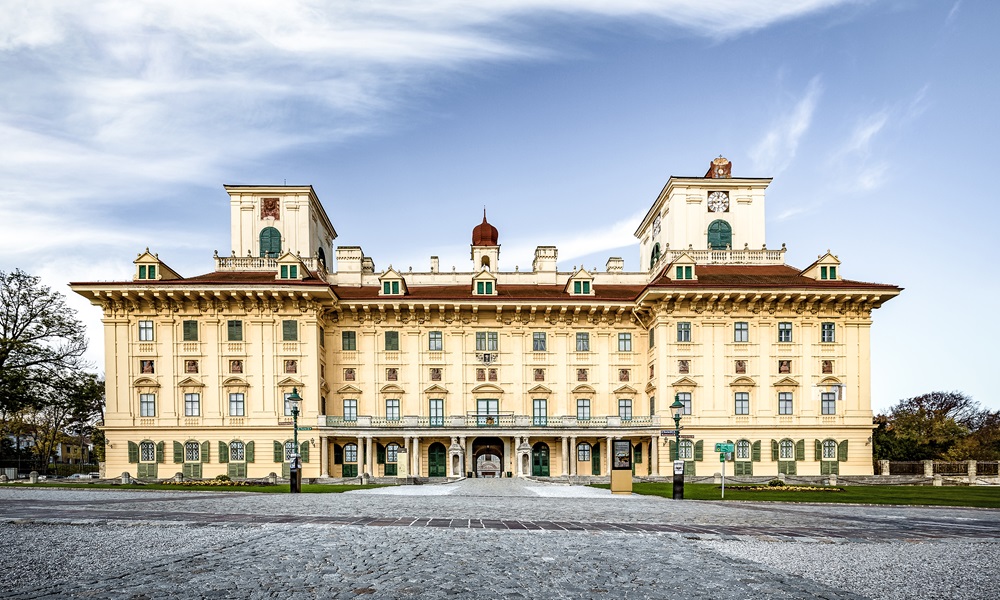
New opera by Detlev Glanert at Semperoper Dresden (world premiere 10.2.24)
On February 10, 2024, Detlev Glanert’s latest stage work, a commissioned composition, will be premiered at the Semperoper Dresden: the five-act opera “Die Jüdin von Toledo” (“The Jewish Woman of Toledo”) with a libretto by Hans-Ulrich Treichel based on the play of the same name by Franz Grillparzer.
Detlev Glanert is alone among German composers of the past few decades in frequently and successfully providing modern music theatre with material and content that is relevant to our times, reaching and appealing to a wide audience in the process. It is not for nothing that he was awarded the OPUS Klassik prize as “Composer of the Year” for his Fontane opera “Oceane” in 2020, as well as being presented with the International Opera Award in 2020/21. But Glanert always also demands something of his audience, as the source material he uses, whether historical or literary (or both) in nature, is always of some complexity, as evidenced, for example, by “Der Spiegel des grossen Kaisers”/”The Mirror of the Great Emperor” (premiere 1995, after Arnold Zweig, awarded the Rolf Liebermann Opera Prize), “Joseph Süss” (premiere 1999, about the historically documented figure of the financier of that name), “Scherz, Satire, Ironie und tiefere Bedeutung”/”Jest, Satire, Irony and Deeper Meaning” (premiere 2001, after Christian Dietrich Grabbe, awarded the Bavarian Theatre Prize) or “Solaris” (premiere 2012, after Stanisłav Lem).
Detlev Glanert’s new opera, “Die Jüdin von Toledo”, has a seemingly simple plot: a man who is no longer quite young, and married to boot, meets a young and beautiful woman who is still almost a girl, and is almost consumed by his passion for her. And the young girl, bewitched and flattered by the man’s ardent courtship, enters into a relationship with him. The story becomes more complex when we know that the man is Alfonso VIII (1148-1215), the king of Castile, and that the girl is the young Jewish woman Rahel, who, like the king, lives in Toledo, a city threatened and besieged by the Moors. This turns the seemingly simple story of adultery and passion crossing all borders of religion and social standing into an ever more complex historical, political and social tragedy — a tragedy at the end of which Rahel, the beautiful Jewish woman, suffers a cruel death.
It is largely owing to this complexity that the story, handed down in a medieval collection of legends, has found its way into literature, both as a drama and as the basis for novels, from Lope de Vega and Franz Grillparzer to Lion Feuchtwanger. “The beautiful Jewish Woman” and her tragic fate have thus become a topos and a motif in operatic history as well, a motif that is always able to take on a specific relevance in every historical period.
It is Grillparzer’s drama, which was given its first performance posthumously in 1872, that served as a major basis, though not the sole one, for Detlev Glanert’s new opera. However, the text needed to undergo a special, free transformation to make it suitable for a music drama. Glanert gave this job to his tried-and-true librettist Hans-Ulrich Treichel, who used the five-act drama written in blank verse as the starting point for a largely independent adaptation of the material. It is the third time the pair has worked together, after “Caligula” (2006) and “Oceane” (2019).
The production of this world premiere is by the Canadian Robert Carsen, whose name is currently on everyone’s lips because of his nomination as director of “Jedermann” in Salzburg for 2024 and who already worked with Glanert at the premiere of “Oceane”. The Sächsische Staatskapelle and the Dresden State Opera Chorus will be under the musical direction of Jonathan Darlington. The roles are interpreted by Heidi Stober, Lilly Jørstad, Christoph Pohl, Tanja Ariane Baumgartner, Markus Marquadt and Aaron Pegram.
detailed press release including more information about the plot and the cast




